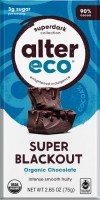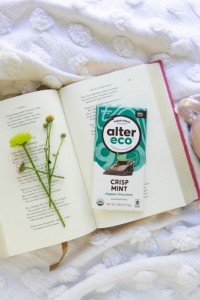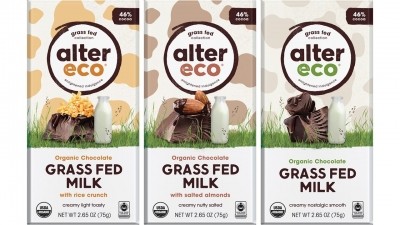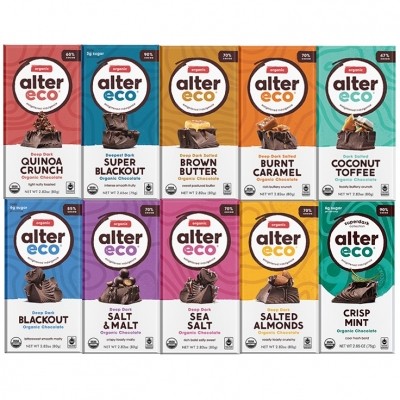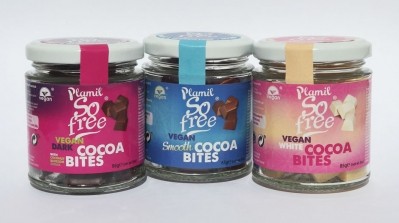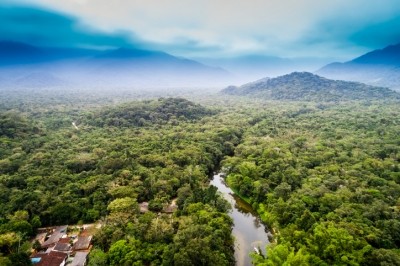Sustainability
‘What do we do next?’: Alter Eco leaps into compostable packaging
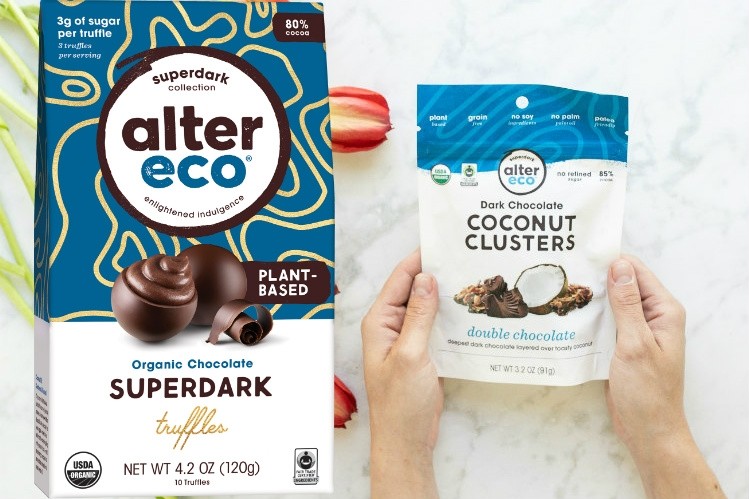
Despite the small size of a single truffle wrapper, the ability to recycle it or compost it matters, Mike Forbes, Alter Eco’s CEO, told ConfectioneryNews.
“It’s not that big, physically, so [as] we think about global warming and climate change, one truffle wrapper is not going to make a difference,” he said. “We flipped that: that’s exactly where we should start. Start with small things and make them big.”
The 15-year-old, San Francisco-based company debuted its compostable truffle wrapper way back in October 2013 – laying the groundwork for additional packaging progress today.
The Superdark Collection
On the product side, the brand launched its Superdark collection in April. The 80% to 90% cacao chocolates made sense for today’s marketplace: “Consumers these days, they’re really looking for clean food and more transparent food,” noted Forbes.
So far, the Superdark line includes the brand’s popular truffles and coconut clusters, as well as a plain dark bar and a ‘crisp mint’ bar. Distribution started in May, and they are slated to hit Kroger shelves later this summer.
In addition to consumer demand, retailers also requested a dark chocolate truffle (in that compostable wrapper, of course), which Alter Eco makes with milk and coconut oil
Making compostable commonplace
Alter Eco committed to packaging all of its products in fully recyclable or compostable material by 2020. Why? “Problems that might seem difficult for others, we just say, ‘You know what? We want to lead,’” said Forbes.
“Everyone in our company is here because of that.”
Despite the positivity, the company does not deny the challenges of pursuing such a mission – especially in a country where recycling rates remain abysmally low and compost services are scarce.
“People use that as an excuse to not work on a problem,” added Forbes, comparing the once unwanted, now commonplace seatbelt in cars.
“I look at sustainability solutions in a similar vein. When you get started, there’s always a whole bunch of challenges...just because they’re complex doesn’t mean we shouldn’t work on them. We’ve solved part of it; now we have to move on to other things.”
He said to expect initiatives down the line that involve partnerships to increase compost services, for instance.
Most importantly, regardless of how sustainable the package, it must serve its singular purpose: protecting the product within. Then, once the prototype is ready, other manufacturers might not take the time to accurately test the product’s shelf life in that compostable packaging.
Alter Eco spent three years ensuring its material – manufactured in a Swiss facility able to work with compostable material – worked: “For a small company, that’s a really, really big deal,” said Forbes.
Whereas major CPG players have scale, Alter Eco is scrappy, he continued. The compostable truffle wrapper will rescue 13m packages from landfills every year – yet his team continues to ‘look for that next thing.’
Next up: a compostable or recyclable package for the brand’s clusters. Made with chocolate, coconut and seeds, this product presents a particular conundrum. In an effort to not ‘lose that crunchiness,’ according to director of marketing and innovation Antoine Ambert, the company is in the midst of testing both a recyclable and a compostable bag.
“We’d prefer the compostable wins – that’s pushing the envelope more,” said Ambert, but it depends on which one better protects the product.
Conventional packaging is, of course, easier thanks to an existing supply chain, pricing and availability. “To really innovate in packaging, every piece of this process becomes a little bit different,” said Forbes. “You have to question everything you did before.”
Getting others in the game
By putting the word ‘activism’ front and center on its website, Alter Eco hopes other manufacturers and retailers join its quest.
“We want people to know that for us, the work we do around sustainability isn’t just something that happens in the background when people have extra time,” Forbes told us. “It really is our reason for being. It’s why this company exists. It’s something we are always actively thinking about.”
For now, the company is content ‘being at the front of the pack,’ but “we welcome anybody who joins in at whatever level they can.”
'We want to lead change'
Founders Mathieu Senard and Edouard Rollet inaugurated Alter Eco in 2004 as a company rooted in sustainability and social activism. While traveling, the duo realized that farmers rarely benefited from the high prices Western consumers were paying for ancient grains like quinoa. They started Alter Eco with that product, which led to chocolate – now the brand’s bread and butter.
A decade ago, Alter Eco was one of the few organic, FairTrade chocolate brands available, according to Forbes.
The brand sources chocolate from co-ops in Peru, Ecuador, Bolivia and the Dominican Republic. Its coconut comes from a co-op in Sri Lanka.
In training farmers in Ecuador, the company has also invested in agroforesty initiatives that support regenerative agriculture and biodiversity, Ambert told us. Farmers have planted mango and banana trees, for instance, “that really created biodiversity in the soil, but also…[created] shade and canopy for cacao trees, which increased yield.”
This kind of investment can not only improve yields but also mitigate effects of climate change, he said.
“We want to lead change,” added Forbes. “That means some of the things we’ve helped pioneer are much more widely available. That creates the challenge for us: what do we do next? Global warming, poverty…those issues are getting worse, and so it’s important for us to continue to push the barrier.
“This is our DNA; that always has been the ethos and will always be the ethos. Everything we make needs to be better for the people who make it.”
*Editor's Note: The original version of this article mistakenly described the compostable truffle wrapper as a 2019 development. It debuted in October 2013 and saves 13m wrappers from landfill every year, not every day.
